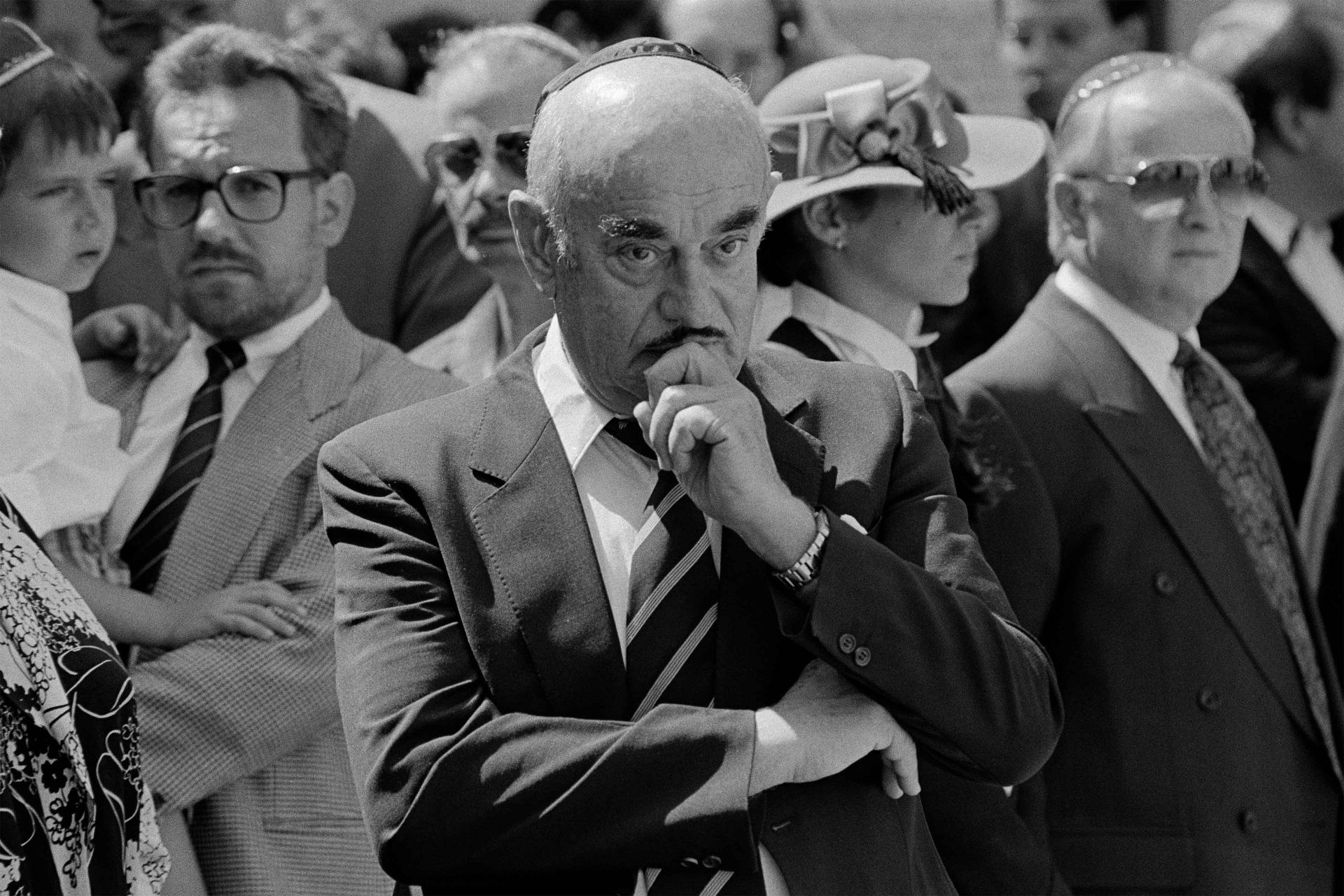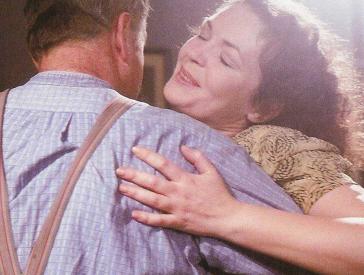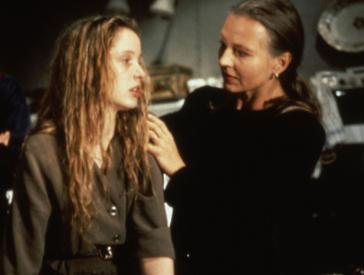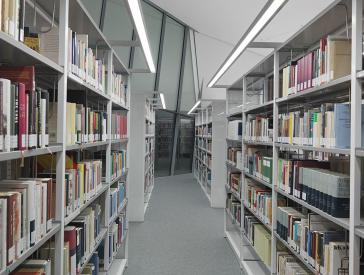The Artur Brauner Collection at Our Library

Artur Brauner at Heinz Galinski’s funeral
Jewish Museum Berlin, Photo: Michael Kerstgens
The Media Library in our Reading Room presents a selection of the work of one of the most successful film producers in German post-war history. Artur Brauner was born in Łódź in 1918 as Abraham Brauner. He fled the Soviet Union in 1940. After the war, along with hundreds of thousands of Polish Jews, he traveled to the Western occupation zone of Germany. In 1946, in the ruins of post-war Berlin, he founded the Central Cinema Company (CCC) with his brother-in-law Joseph Einstein.

Where
W. M. Blumenthal Academy, Library
Fromet-und-Moses-Mendelssohn-Platz 1, 10969 Berlin
Postal address: Lindenstraße 9-14, 10969 Berlin
Although he initially had no license to produce films, Brauner nonetheless began to do so the same year. After his comedy Herzkönig (King of Hearts), Soviet Military Administration supported him in making the artistically ambitious film Morituri in 1947, which addresses Nazi eliminationist antisemitism. Audiences spurned the film, sometimes even protested, and visitor numbers fell far short of expectations.
Despite this financial fiasco, Brauner's rise to the ranks of West Germany's leading filmmakers began at that time. In the following years, he produced nearly 250 feature-length films, many of them in his own film studio, which he established in 1950 in a former chemical weapons laboratory in the Haselhorst district of Berlin. A steady flow film and television productions by both CCC and outside companies were filmed there until the 1970s.
Brauner's film oeuvre reflects the spectrum of West German film in the post-war decades. It was dominated by light entertainment and rarely addressed serious issues. The CCC produced Heimatfilme (outdoorsy "homeland" films) and comedies as well as thrillers, erotic films, historical dramas, and adventure films. Time and again, Brauner, Fritz Lang, and Robert Siodmak hired directors who had emigrated after 1933.
Since beginning work in Berlin, Brauner appeared in public as a confident Jew and showed his support of the State of Israel in many ways. In the spirit of Morituri, Brauner's cinematic exploration since the 1980s addressed the persecution and murder of European Jewry in collaborations with notable directors such as Andrzej Wajda, István Szabó, and Agnieszka Holland.
Brauner died on 7 July 2019 in Berlin.
References
- Brauner, Artur. Mich gibt's nur einmal. Rückblende eines Lebens (There's Just One Me: Flashback on a Life). Munich: Herbig, 1976
- Dillmann-Kühn, Claudia. Artur Brauner und die CCC. Filmgeschäft, Produktionsalltag, Studiogeschichte (Artur Brauner and the CCC: The Film Business, Everyday Life in Production, Studio History, 1946–1990). Frankfurt am Main: German Film Museum, 1990.
- Brauner, Alice, ed. CCC Filme in aller Welt (CCC Films Throughout the World). Berlin: CCC Film, 2013.
Film Collection: Artur Brauner Collection (21)

The Library of the Jewish Museum Berlin
- Landing Page
- Our Library: Books, films, and more about Jewish art, culture, and history
- Library Catalog (OPAC)
- Our Collections: collection fields at a glance
- Information for Visitors
- Reading Room: Opening hours, catalogs, databases, requesting archive material
- Registration Form: Register to view rare holdings from our library and documents from our archive
- Terms of Use: Requirements for visitors to the archive and library of the Jewish Museum Berlin
- Our Library’s Classification Scheme: The focuses and thematic areas according to which our collection is organized and grouped
- List of Fees: Prices and rates for services at the reading room of our library and archive
- Collections and Projects
- Collections on Jewish Art and Culture: Volumes printed by the Soncino Society, the publications of the Centralverein, Hebrew Printing, and special collections on Jewish art and visual culture
- Current page: The Artur Brauner Collection: Twenty-one films by the successful film producer
- Digitizing Book Holdings: Publications of the Soncino Society of Friends of the Jewish Book, 2016
- Enlarging and Indexing Our Holdings in Jewish Art: DFG Project on visual and material culture of Judaism, 2013–2018
- Digital Content
- Highlights from the Library Collection: A medieval manuscript, a cookbook from 1900, an elaborate Hebrew children’s book and other treasures
- Digital Books: A complete list of our digitized books (in German)
- Rare Digital Books: Curated selection of valuable digitized material from our holdings
- Story Time in Our Library: Why Noah Chose the Dove by Isaac Bashevis Singer, 2023
- “Hörmahl:” A Feast for the Ears: Podcast series about Rahel Varnhagen, Lina Morgenstern and other women writers, 2021–2022, in German
- See also
- Judaica Portal: Online database of Judaica holdings at various institutions, including our library’s holdings
- Periodicals in the ZDB: Research tool for magazines, newspapers, and databases in German and Austrian libraries
- Deutsche Digitale Bibliothek (DDB): Our digitized publications accessible via the DDB
- AG Jüdische Sammlungen: Website of the Jewish Collections working group (in German)
- Library Holdings: Search engine for our online collections (in German)
- Literature
- Literature for Children and Young Adults























